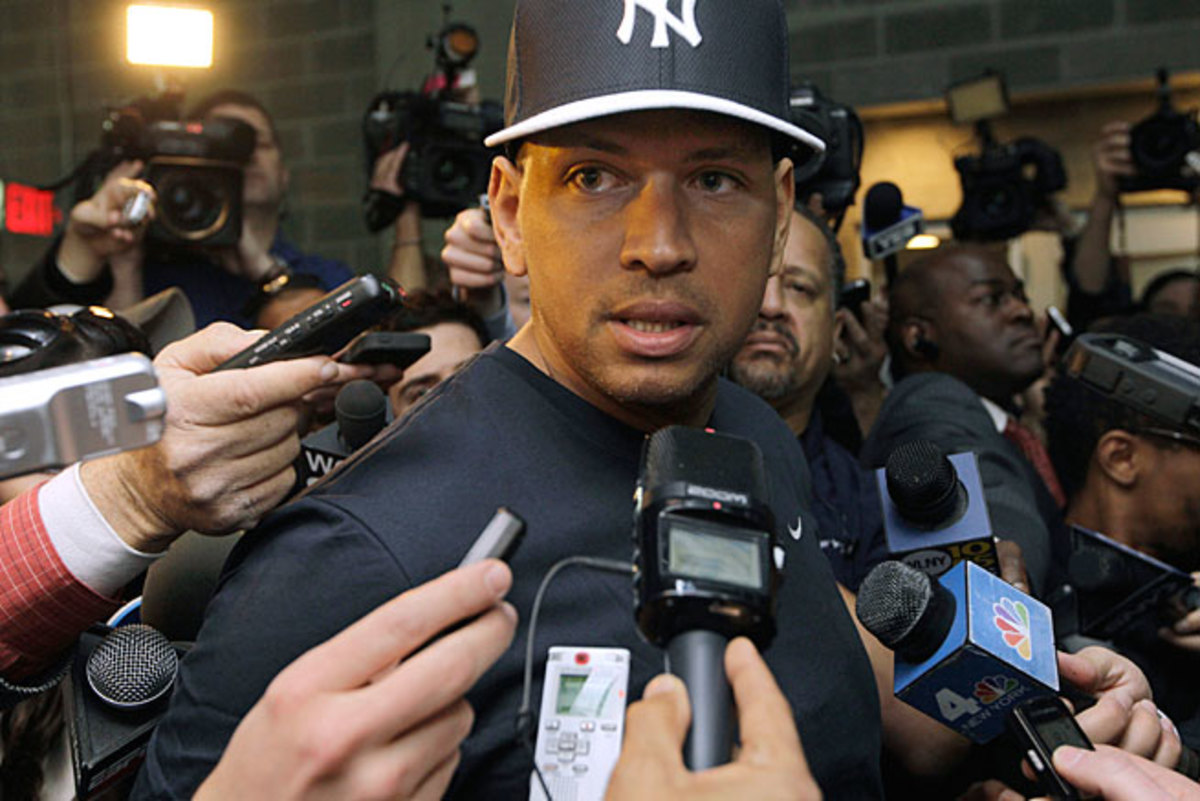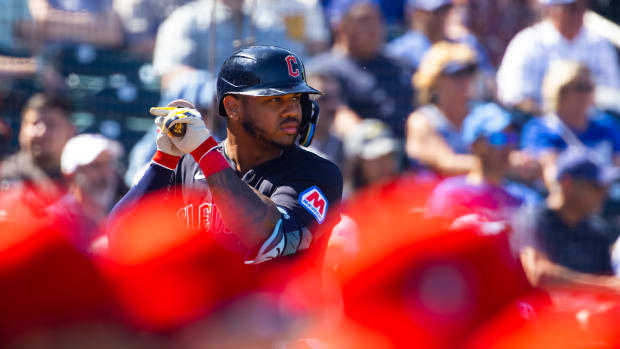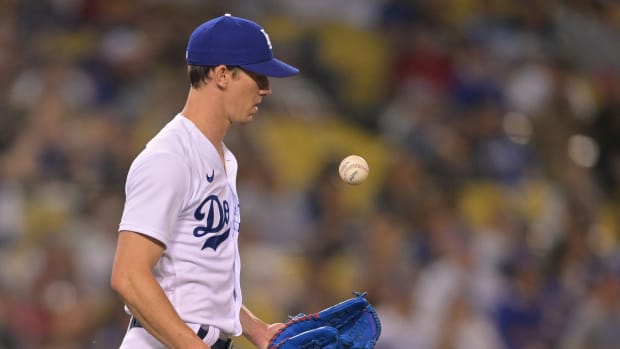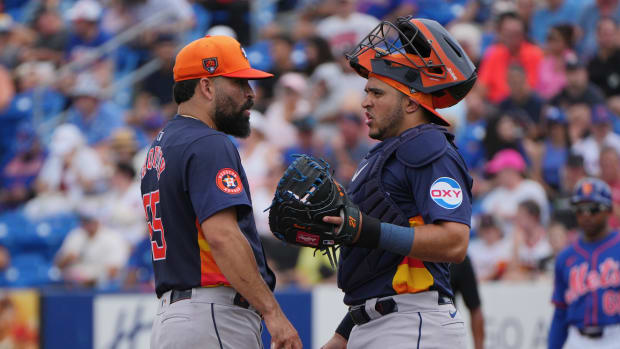Neither A-Rod nor MLB look good in latest Biogenesis twist
Just when you thought that Alex Rodriguez's fall from baseball's golden boy to its preeminent villain had reached its nadir, last week's news reminded you that, for him, there are always more depths to be explored. Thursday's New York Times revealed that Major League Baseball paid a former employee of a defunct South Florida anti-aging clinic for documents related to the clinic's alleged supplying of performance enhancing drugs to a half a dozen players, and that the purchase was made, in part, because the commissioner's office had learned that at least one of the accused players had bought documents himself, possibly to destroy them.
The next day, thanks to a suspiciously timed leak, the newspaper reported that the player whose alleged document-procuring efforts the league was trying to counteract was, to the surprise of no one, Rodriguez. Whom did you expect, Francisco Cervelli? You pictured Rodriguez, the 37-year-old Yankee who is spending most of his days rehabbing his injured hip in Florida, sitting in a darkened mansion, stroking the white cat in his lap and cackling as the evidence against him goes up in smoke in an enormous fireplace.
It is now hard to remember the time in which Rodriguez was destined to be the game's handsome face, thanks to his preternatural talent -- he hit .358 as a 20-year-old Seattle Mariner in 1996, and two years later joined the 40-40 club -- and, as it seemed then, his dignified bearing. For the past decade or so, even as he won his three American League MVP awards, he has become embroiled in a string of nearly annual embarrassments, both silly and serious, that baseball fans need only a few keywords in order to recall, and that have delighted New York's tabloid headline writers (BYE BYE A-ROD, blared the Daily News on Saturday). There was the glove slap (2004); the shirtless sunbathing (2006); the World Series hijacking (2007); Madonna (2008); the admission, spurred by an SI investigation, that he had once used PED's (2009); the centaur paintings (2009); the Super Bowl popcorn feeding by Cameron Diaz (2011).
Now, with last week's news, Rodriguez no longer seems merely unsympathetic, but sinister. A spokesman for Rodriguez refuted the reports that his client had arranged to purchase documents ("Alex flatly denies the allegations," the spokesman told SI), and a league representative declined to go even that far. "We don't comment on our ongoing investigations," he said.
Take a step back from the thriller-worthy details -- you imagined loudly ticking clocks, smoke filled rooms, German femmes fatales bearing attaché cases filled with unmarked bills -- and it seems increasingly likely that, unlike in a Fleming novel, things are not inexorably moving toward a neatly satisfying resolution. In fact, as far as baseball's pursuit of Rodriguez, Cervelli and the other players -- including All-Stars Ryan Braun, Nelson Cruz and Gio Gonzalez -- alleged to have been clients of the clinic, Biogenesis of America, last week's developments provided no answers, and only spurred the asking of more questions.
Questions such as: Why would Major League Baseball pay thousands of dollars to men who are essentially drug dealers in white coats in exchange for evidence that will be tainted because it was bought? And: Why would the chicken scratches of such unsavory characters be considered wholly authentic evidence to begin with, especially when they have now been financially incentivized to scratch out ever more of it? And: Why would a baseball source leak Rodriguez's name, thereby revealing information that would undoubtedly have been more damning if kept close to the vest until a formal proceeding had been initiated? And: Hasn't anyone heard of photocopies?
Baseball's actions suggest not the nearing of a conclusion, in which it can force Rodriguez (who after 2013 will have four years and $86 million remaining on his Yankees contract) to finally go away, but a mounting frustration with its inability to do that. Its investigation into Biogenesis has now consumed an untold fortune and nine months -- it began last summer, when Melky Cabrera was suspended 50 games after testing positive for testosterone -- with little to show for it other than a 100-game ban for Cesar Carrillo, who as a minor leaguer is not protected by the players' union. Bereft of subpoena power, the league was not even able to convince the Miami New Times, the weekly newspaper whose explosive January report linked the clinic with Rodriguez and the other players now under investigation, to turn over the cache of records on which the report was based.
Commissioner Bud Selig's zealous commitment to a zero tolerance drug policy, after an era in which the use of PED's was tacitly tolerated, is absolutely laudable, as far as its effort to rid baseball not only of chemical advantages but of the nefarious influences to whom players turn to gain them. The Biogenesis investigation might prove to players that the league is committed to inflicting more pain on the posteriors of suspected cheats than any injections that they might or might not have received there.
At some point, however, baseball might stop for a moment to consider whether the costs of its pursuit of the Biogenesis players, and in particular of Rodriguez, its hero-turned-scoundrel, threaten to grow too steep. The game it is playing is unlike those it oversees on its fields, in which -- except, perhaps, in the case of the 2002 All-Star Game -- the proceedings continue until there is a clear victor.
On one level, last week's revelations actually read not like something out of Fleming, but Nietzsche. It was the German philosopher who wrote, "He who fights too long against dragons becomes a dragon himself; and if you gaze too long into the abyss, the abyss will gaze into you."
The league should certainly continue to pursue its ever-stricter testing and punishment policies, and its investigations, too. But the paying off of drug peddlers? The apparent back channel embarrassing of Rodriguez, even if the allegations are true? That seems to be dragon behavior. The abyss might be starting to gaze in.




































